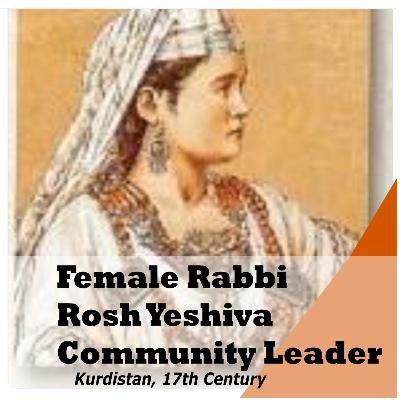A Rabbi and a Sea Pirate - Shmuel Pallache Morocco and Netherlands in the 16th Century - David Ha’ivri’s Jews of Interest Historical Series
Description
Have you heard of the Jewish rabbi from Morocco who became a sea pirate and a diplomat in the 16th century? This is the story of Rabbi Samuel Pallache. He was born in the city of Fez, Morocco in 1550 to parents who had made their home there after fleeing persecution of Jews in Spain following the Al-Ham-bra decree of March 1942. When Catholic Monarchs Queen Isabella I of Castile and King Ferdinand II of Aragon expelled all Jews from Spain as part of the Reconquista. This followed forced conversion of nearly half of Spanish Jews to Christianity. Hundreds of thousands of Jews were either forced to become Catholic or flee the country.
Samuel Pallache was born in 1550 in the crowded Jewish quarter of Fez, like many of his neighbors who were descendants of Jews expelled from Spain. His father was a rabbi and teacher, who planned a similar career for his son. But Samuel, who was ordained as a rabbi, had different aspirations he dreamt to travel seas. Samuel with his brother Yosef, went to Tetuan in north Morocco, where they soon became seamen and Pirates. The Pallache brothers determined to punish the Spanish for the crimes they committed against the Jews, they would attack Spanish commercial ships coming back from South America loaded with wealth from the New World and then they would pose as Spanish traders and sell the goods they stole in the Spanish port cities.
In his book “Jewish Pirates” Edward Kritzler sheds light on a fascinating phenomena: Jewish pirates who acted after the expulsion from Spain and would attack mainly Spanish ships as revenge. The most notable man among them was Don Samuel Pallache, who was a rabbi, ship captain, ambassador, spy, double agent – as well as a pirate.
Samuel Pallache arrived in the Netherlands (Holland) sometime after 1590. After a delegation from the Dutch Republic visited Morocco to discuss a common alliance against Spain. In 1608 Sultan Zidan Abu Maali appointed the Jewish merchant Samuel Pallache to interpret for his envoy to the Dutch government in The Hague.
On June 23, 1608, Pallache met Prince Maurice of Nassau and the States-General in The Hague to negotiate an alliance of mutual assistance against Spain. In December 1610, the two nations signed the Treaty of Friendship and Free Commerce, an agreement recognizing free commerce between the Netherlands and Morocco, and allowing the sultan to purchase ships, arms and munitions from the Dutch.This was one of the first official treaties between a European country and a non-Christian nation.
In addition to his diplomatic affairs, Pallache also continued his activities as a merchant, actively trading between the Netherlands and Morocco. He also got permission from Prince Maurice for privateering activities. The goods obtained through these pirating activities were sold along the Moroccan coast.
In 1614, Pallache, having captured a Portuguese ship, was unable to bring its cargo ashore in Morocco and so sailed for the Netherlands. A heavy storm forced him to seek refuge in an English port where, by request of the Spanish ambassador, he was arrested and imprisoned. Eventually, Prince Maurice came to his aid and helped bring him back to the Netherlands. However, he had lost all his money by then and fell ill shortly thereafter.
On February 4, 1616, he died in The Hague, and was buried in the Beth Haim cemetery of the Portuguese Jewish community in Ouder-kerk aan de Amstel near Amsterdam. His tombstone describes him as Morokkaans Gezant (the Moroccan envoy). It cites his birthplace of Fez (Morocco). and burial date in Hebrew calendar 16 of Shvat 5376 (February 4, 1616). And lists three sons: Isaac, Moses, and David.















